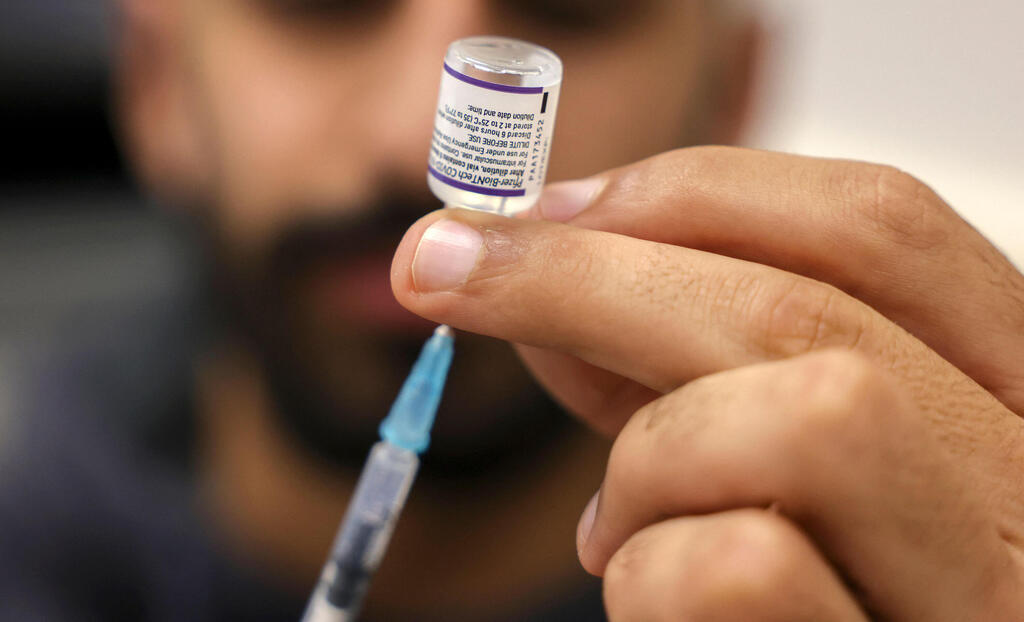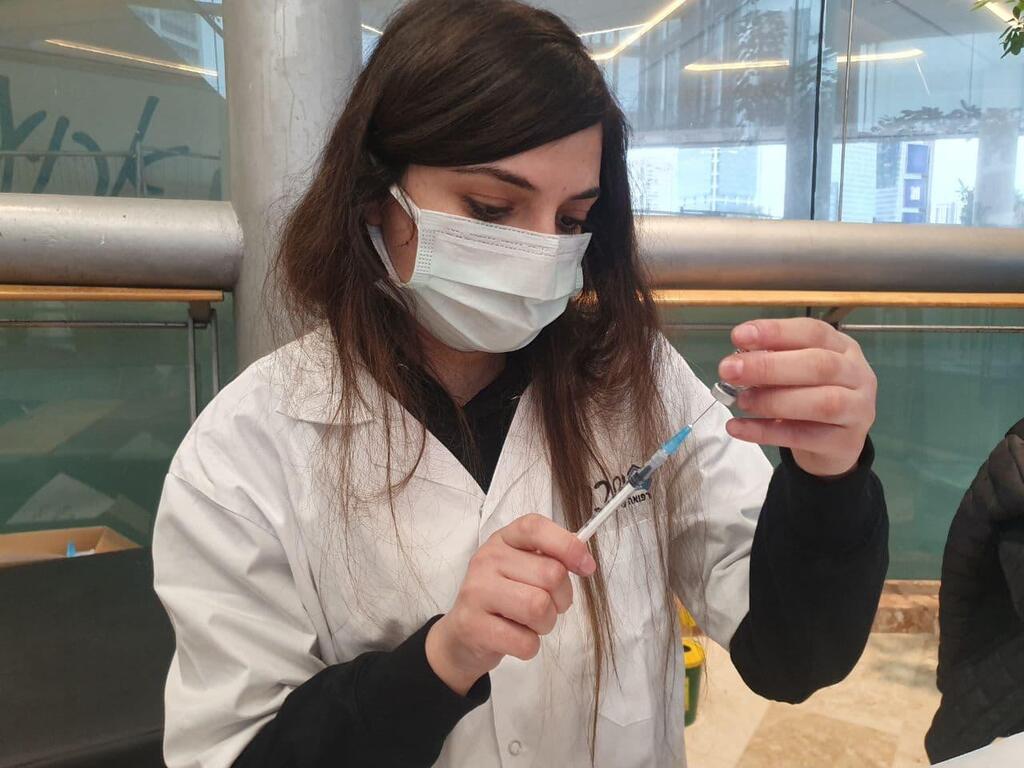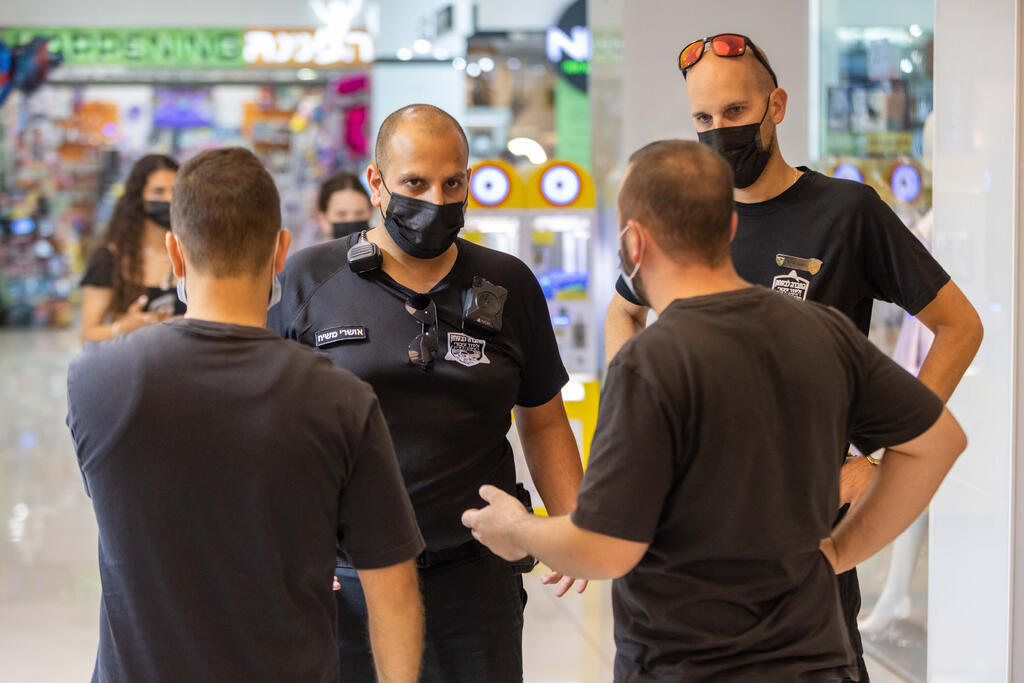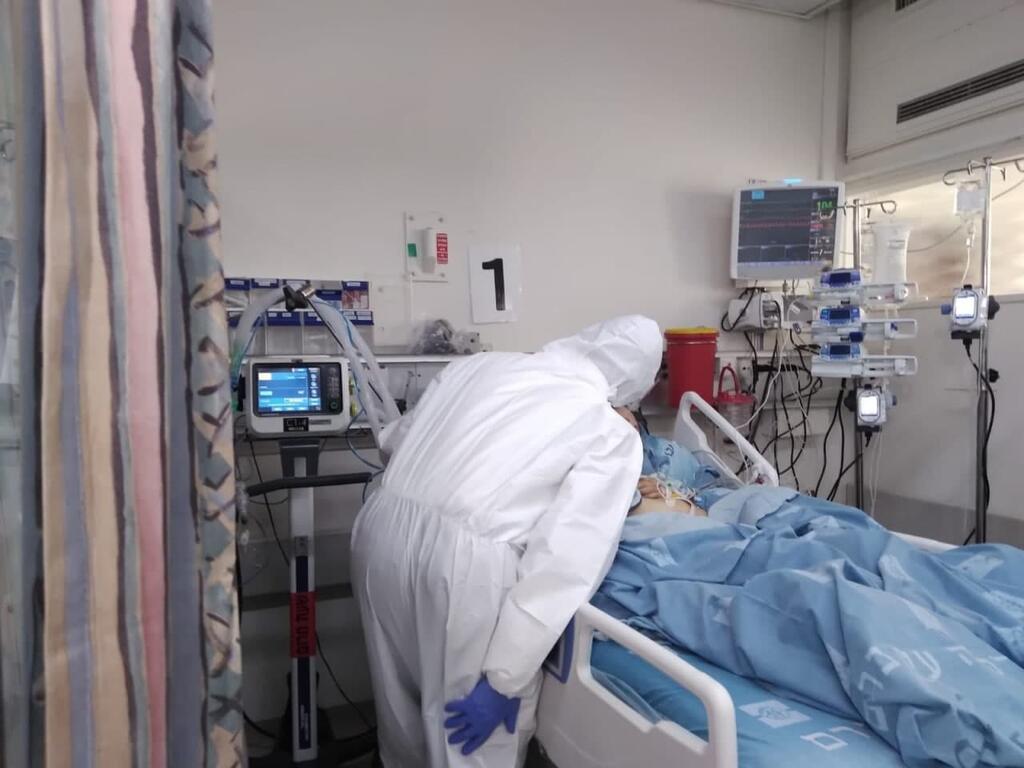Getting your Trinity Audio player ready...
Israel reported Thursday morning that 1,400 new cases of coronavirus have been diagnosed over the last 24 hours, marking the country's highest swelling of daily cases in more than two months.
Health authorities carried out about 98,500 coronavirus tests in that time which puts the country's contagion rate at 1.44%, also the highest such figure reported in weeks.
5 View gallery


Health worker holds a vial of COVID-19 vaccine and a syringe at vaccination hub in Jerusalem
(Photo: AFP)
Meanwhile, Israel's coronavirus R number — which gauges how many new cases crop up as a result of a single infection — stood at 1.34, which indicates the spread of the outbreak is accelerating.
Israeli hospitals were treating 124 COVID-19 patients, 83 of them were in serious condition. Of the gravely ill, 70 were unvaccinated — accounting for 84% of all severe cases, five patients were vaccinated with two doses and eight others have received a booster shot.
The unvaccinated also accounted for more than 93% of severe cases among people younger than 60.
According to Health Ministry data, there were 9,591 active coronavirus carriers throughout the country, most of whom displayed mild to no symptoms at all.
Ministry data show that 9,402 Israelis received their first coronavirus vaccine dose on Wednesday, most of whom were children aged 5–11, and 5,715 people were vaccinated with a booster shot.
Since Sunday, 33,392 Israelis received their first vaccine dose while 22,875 go their booster shot.
Overnight Thursday, Prime Minister Naftali Bennett said in closed talks he believed the spread of the Omicron coronavirus variant will reach massive proportions but will be short-lived.
"There is going to be serious bedlam, but it will be relatively short-lived. We'll reach insane figures," the premier told his ministers, adding he estimated the spread of Omicron will peak within 7–10 days.
5 View gallery


Health worker holds a vial of a coronavirus vaccine and a syringe at a vaccination station in Tel Aviv
(Photo: Nitzan Dror)
He also advocated further restrictions in hopes of avoiding another lockdown as the number of daily confirmed coronavirus cases hovered above 1,000 for the first time in two months.
"No one wants a lockdown, but you can't predict the future," he said. "Our goal is to act with full force so there won't be a lockdown, do whatever we can to avoid a lockdown. Let's give a little now to avoid a disaster later."
Bennett further said he hoped the public would cooperate with the government's efforts and vaccinate their children as he works to shore up Israel's pediatric vaccination campaign through the country's health funds and education system.
Meanwhile, Israel on Tuesday became the first country in the world to begin offering a fourth coronavirus vaccine booster shot shortly after ministers warned the country may be headed towards a general lockdown as soon as next month.
The coronavirus cabinet convened Tuesday evening to discuss putting in place further measures to stem the spread of the highly mutated Omicron variant of COVID amid worrying signs of resurging morbidity.
Shortly after the meeting a panel of health experts advising the government on the pandemic approved offering a fourth vaccine booster shot to immunocompromised sectors of the public and those over the age of 60, provided it has been at least four months since their last vaccine jab. The fourth booster will also be offered to medical teams.
Bennett's office said the campaign, which still requires bureaucratic approvals, is expected to begin in the coming days.
Prior to the meeting, ministers approved via telephone vote reducing attendance for public employees to 50% from December 26 through January 26.
5 View gallery


Inspectors enforce coronavirus health measures at a mall in central Israel
(Photo: Tal Shahar)
Health Ministry officials also presented ministers with a list of recommendations, including tightening gathering caps at businesses and public events.
The panel also agreed on an outline that would only allow in-person learning in cities with bad COVID-19 outbreaks if at least 70% of students have been vaccinated. If immunization rates are below 70%, schools will have to revert to distance learning.
Itamar Eichner contributed to this story.



